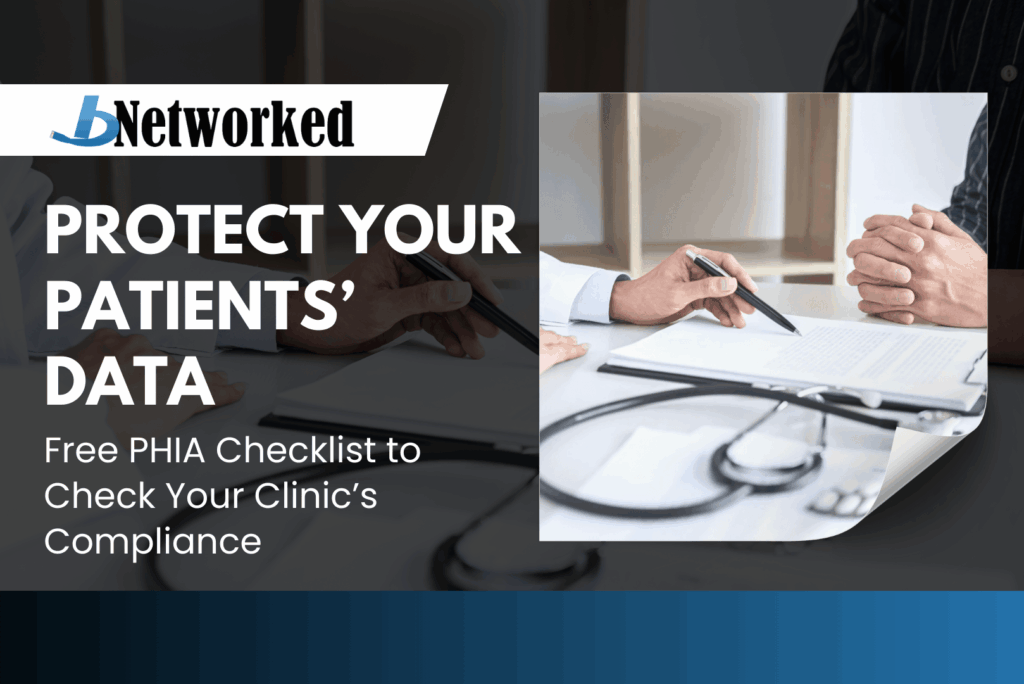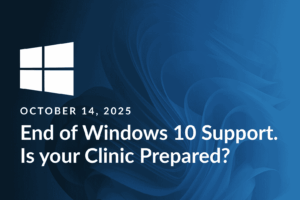Every private healthcare clinic in Nova Scotia has a responsibility to protect the personal health information of its patients. The Personal Health Information Act (PHIA) sets the rules for how patient data must be collected, stored, shared, and destroyed. Clinics that fail to comply risk investigations, financial penalties, and the loss of patient trust.
Why PHIA Compliance Matters
Data breaches are not just a legal risk, they also have real business consequences. According to the IBM Security Cost of a Data Breach Report 2023, the average cost of a breach in the healthcare industry is one of the highest across all sectors. Beyond financial costs, a breach can damage your reputation and reduce patient confidence in your clinic.
Compliance with PHIA ensures that clinics follow best practices for safeguarding sensitive health information. It protects your patients, your staff, and your business.
Practical Steps for Clinics
- Establish Clear Policies and Procedures
Create and document policies covering all aspects of PHI management, including collection, storage, use, and destruction. Appoint a privacy contact person responsible for overseeing these policies and ensure staff know how to handle privacy complaints. - Train and Support Your Staff
All employees, contractors, and volunteers should sign confidentiality agreements. Regular privacy and cybersecurity training helps staff recognize and respond to potential breaches. - Implement Physical and Technical Safeguards
Patient records must be stored in secure, access-controlled areas. Computers and devices should use strong passwords, encryption, and automatic updates. Access to PHI should be limited to staff who need it to perform their job. - Follow Administrative Best Practices
Minimize sending PHI through unsecured channels such as fax or email. Set clear rules for voicemail, texting, and social media to prevent accidental disclosure. Conduct privacy impact assessments whenever systems or processes change. - Respect Patient Rights
Patients have the right to understand how their data is used and to request access or corrections to their records. Clinics should have processes in place to respond to these requests within the timelines set by PHIA. - Prepare for Breaches
Document what counts as a privacy breach and have a response plan in place. Staff should know the steps to take if a breach occurs, including when and how to notify patients and regulators.
Free Resource: PHIA Compliance Checklist
To help Nova Scotia private clinics, we created a Nova Scotia PHIA Compliance Checklist. This tool lets you quickly review your clinic’s current PHIA compliance and identify areas that need attention.
👉 Download Your PHIA Compliance Checklist
Need Extra Guidance?
If you want expert guidance, book a free 1-on-1 Cyber Strategy Session. Our team helps clinics align people, processes, and technology to secure PHI and meet PHIA requirements. There is no obligation, and you can walk away risk-free if it’s not right for your clinic.
Join Our Weekly PHI Cyber Security Briefing
Every Wednesday at 1:30 PM ADT, we host a live session for Nova Scotia healthcare providers. Learn about PHIA compliance, cybersecurity trends, and practical tips to keep patient data secure.
RESOURCES
IBM Security – Cost of a Data Breach Report 2023
https://www.ibm.com/reports/data-breach









